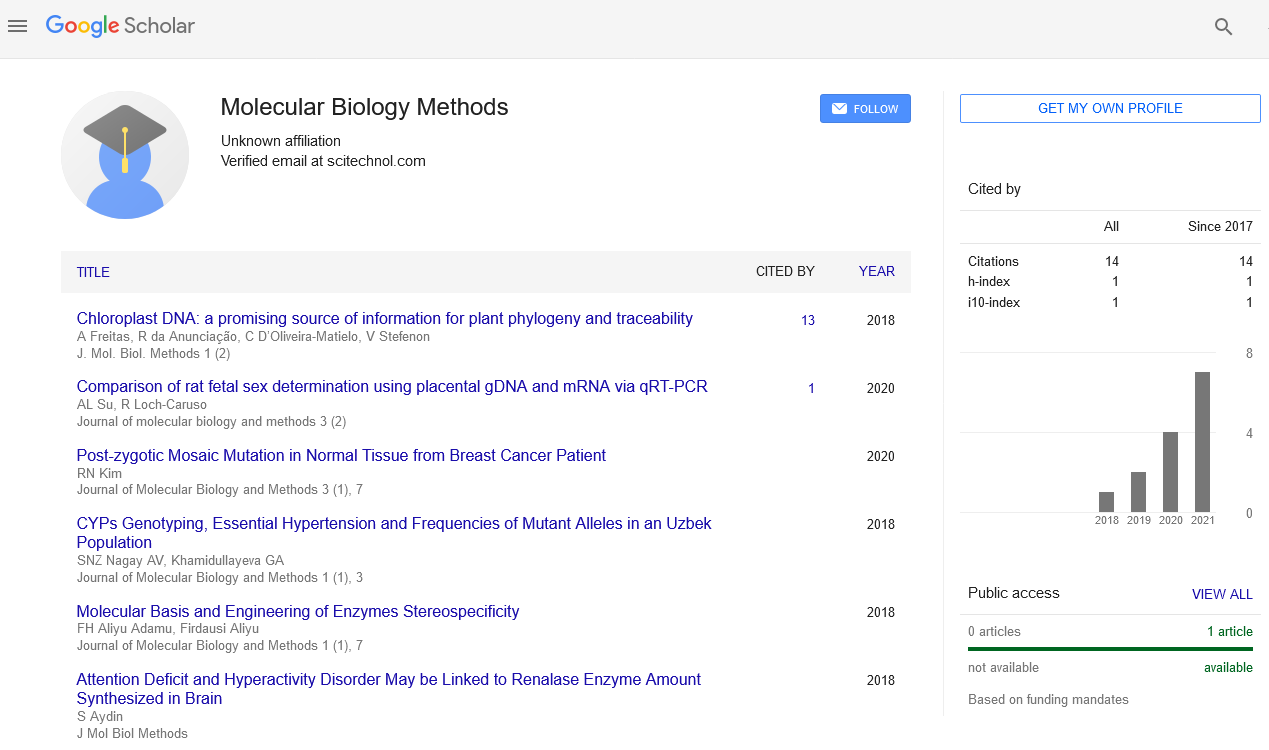Opinion Article, J Mol Biol Methods Vol: 6 Issue: 2
Investigating the Influence of Gut Microbiota on Tumor Growth and Response to Cancer Therapy
Victor Amygdala*
1Department of Forensic Medicine, University of Pécs, Hungary
*Corresponding Author: Victor Amygdala,
Department of Forensic
Medicine, University of Pécs, Hungary
E-mail: amygllavictor@yahoo.com
Received date: 22 May, 2023, Manuscript No. JMBM-23-108097;
Editor assigned date: 26 May, 2023, Pre QC No. JMBM-23-108097 (PQ);
Reviewed date: 10 June, 2023, QC No. JMBM-23-108097;
Revised date: 19 June, 2023, Manuscript No: JMBM-23-108097(R);
Published date: 28 June, 2023, DOI: 10.35248/jmbm.1000136
Citation: Amygdala V (2023) Investigating the Influence of Gut Microbiota on Tumor Growth and Response to Cancer Therapy. J Mol Biol Methods 6:2.
Description
The human body is host to trillions of microorganisms, collectively known as the microbiota, that play crucial roles in various physiological processes. Among these, the gut microbiota, residing in the gastrointestinal tract, has emerged as a significant factor influencing both health and disease. In recent years, growing evidence suggests that the gut microbiota plays a pivotal role in modulating tumor growth and the response to cancer therapy, opening up exciting avenues for potential therapeutic interventions. The gut microbiota is a diverse community of bacteria, viruses, fungi, and other microorganisms that live in symbiosis with the host. It profoundly influences the host's immune system, metabolism, and overall physiology. Disruption of the gut microbiota's equilibrium, known as dysbiosis, has been implicated in several diseases, including inflammatory bowel disease, diabetes, and cancer.
Researchers have observed that the gut microbiota can influence tumor development and progression through various mechanisms. One of the most prominent pathways is its impact on the host's immune system. The gut microbiota helps educate and fine-tune the immune response, and alterations in its composition can affect immune cell function and anti-tumor immunity. Beyond tumor development, the gut microbiota also plays a crucial role in determining how cancer patients respond to various treatments. Preclinical studies in mice have shown that the gut microbiota can significantly impact the efficacy of chemotherapy, radiation therapy, and immunotherapy. For example, specific gut bacteria have been found to enhance the anti-tumor effects of certain chemotherapeutic agents, while others may interfere with drug metabolism, leading to treatment resistance.
Moreover, the gut microbiota can influence the side effects associated with cancer therapy. For instance, chemotherapy-induced gastrointestinal toxicity is often linked to gut microbiota disruptions, highlighting the potential for therapeutic strategies that modulate the microbiota to mitigate these adverse effects.
Researchers are actively investigating the molecular mechanisms underlying the gut microbiota's influence on tumor growth and therapy response. One key area of interest is the production of metabolites by gut bacteria. These metabolites can directly affect tumor cells or impact the host's immune response. Short-Chain Fatty Acids (SCFAs), produced by certain gut bacteria during the fermentation of dietary fiber, have been shown to have anti-inflammatory properties and can promote anti-tumor immunity. Additionally, the gut microbiota can influence the systemic immune response through the release of bacterial components and metabolites that activate immune cells. This immune activation can either enhance anti-tumor immune responses or, in some cases, promote chronic inflammation, which may facilitate tumor growth and metastasis. The emerging understanding of the gut microbiota's role in tumor biology has sparked interest in developing novel therapeutic approaches that leverage the microbiota to enhance cancer treatment outcomes. Several strategies are being explored.
Probiotics and Prebiotics: Probiotics are live microorganisms that can confer health benefits when ingested, while prebiotics are dietary fibers that promote the growth of beneficial gut bacteria. By administering specific probiotic strains or prebiotic supplements, researchers aim to modulate the gut microbiota to improve treatment responses. FMT involves transferring fecal material from healthy donors into patients with dysbiosis. It has been successful in treating certain gastrointestinal infections, and ongoing research aims to explore its potential in enhancing cancer therapy outcomes.
The investigation into the influence of gut microbiota on tumor growth and response to cancer therapy represents an exciting frontier in cancer research. As our understanding of the complex interactions between the microbiota and the host continues to deepen, new therapeutic opportunities are likely to emerge, potentially improving cancer treatment efficacy and reducing treatment-related side effects. However, more research is needed to translate these findings from preclinical studies to clinical applications successfully. As such, ongoing clinical trials and interdisciplinary collaborations will be instrumental in advancing this promising field of research.
 Spanish
Spanish  Chinese
Chinese  Russian
Russian  German
German  French
French  Japanese
Japanese  Portuguese
Portuguese  Hindi
Hindi 